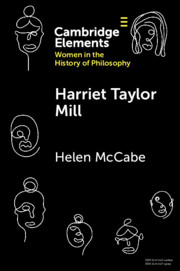109 results
The Global Burden of the COVID-19 Pandemic: Comparing Benefit–Cost Analysis and Social Welfare Analysis
-
- Journal:
- Journal of Benefit-Cost Analysis , First View
- Published online by Cambridge University Press:
- 12 September 2024, pp. 1-32
-
- Article
-
- You have access
- Open access
- HTML
- Export citation
5 - The Myth of Rural Decline
-
- Book:
- Reviving Rural America
- Published online:
- 20 June 2024
- Print publication:
- 27 June 2024, pp 99-129
-
- Chapter
- Export citation
Social Welfare Functions and Health Policy: A New Approach
-
- Journal:
- Journal of Benefit-Cost Analysis , First View
- Published online by Cambridge University Press:
- 27 May 2024, pp. 1-26
-
- Article
-
- You have access
- Open access
- HTML
- Export citation
Monetizing Animal Welfare Impacts for Benefit–Cost Analysis
-
- Journal:
- Journal of Benefit-Cost Analysis , First View
- Published online by Cambridge University Press:
- 25 April 2024, pp. 1-18
-
- Article
-
- You have access
- Open access
- HTML
- Export citation
What calibrating variable-value population ethics suggests
-
- Journal:
- Economics & Philosophy , First View
- Published online by Cambridge University Press:
- 18 March 2024, pp. 1-12
-
- Article
-
- You have access
- Open access
- HTML
- Export citation
6 - Prioritizing Outcomes
- from Part I - Traditions in Ethics and Education
-
-
- Book:
- The Cambridge Handbook of Ethics and Education
- Published online:
- 07 March 2024
- Print publication:
- 14 March 2024, pp 106-124
-
- Chapter
- Export citation
5 - Modernity: The Idea of Progress
- from Part II - The State We’re in and How We Got There
-
- Book:
- Sustainability Science
- Published online:
- 07 December 2023
- Print publication:
- 07 December 2023, pp 91-106
-
- Chapter
- Export citation
Chapter 2 - The Moral Tyranny Constraint
-
- Book:
- Social Anarchism and the Rejection of Moral Tyranny
- Published online:
- 19 October 2023
- Print publication:
- 02 November 2023, pp 68-91
-
- Chapter
-
- You have access
- Open access
- HTML
- Export citation
13 - Hellenism, Hebraism, and Heathenism in Nineteenth-Century England
- from Part VI - Intellectual Superstars
-
-
- Book:
- Victorian Engagements with the Bible and Antiquity
- Published online:
- 28 September 2023
- Print publication:
- 12 October 2023, pp 358-384
-
- Chapter
- Export citation
Chapter 3 - Against System
- from Part I - Approaches to the Corpus
-
- Book:
- How Plato Writes
- Published online:
- 27 July 2023
- Print publication:
- 17 August 2023, pp 52-70
-
- Chapter
- Export citation
3 - Locke and Cumberland
-
- Book:
- Modern Moral Philosophy
- Published online:
- 10 June 2023
- Print publication:
- 15 June 2023, pp 87-110
-
- Chapter
- Export citation
4 - Equilibrium Theory and Normative Economics
- from Part I - Introduction: Content, Structure, and Strategy of Mainstream Economics
-
- Book:
- The Inexact and Separate Science of Economics
- Published online:
- 25 May 2023
- Print publication:
- 08 June 2023, pp 97-124
-
- Chapter
- Export citation
4 - Agonistic Pluralists
- from Part I - Intellectual Sources and Disciplinary Engagements
-
-
- Book:
- The Cambridge Handbook for the Anthropology of Ethics
- Published online:
- 11 May 2023
- Print publication:
- 25 May 2023, pp 96-129
-
- Chapter
- Export citation
8 - Trolley dilemmas from the philosopher’s armchair to the psychologist’s lab
-
-
- Book:
- The Trolley Problem
- Published online:
- 24 February 2023
- Print publication:
- 02 March 2023, pp 134-157
-
- Chapter
- Export citation
Exit Duty Generator
-
- Journal:
- Cambridge Quarterly of Healthcare Ethics / Volume 33 / Issue 2 / April 2024
- Published online by Cambridge University Press:
- 17 February 2023, pp. 217-231
-
- Article
-
- You have access
- Open access
- HTML
- Export citation

Harriet Taylor Mill
-
- Published online:
- 09 February 2023
- Print publication:
- 23 February 2023
-
- Element
- Export citation
Tower of Babel: Variation in Ethical Approaches, Concepts of Welfare and Attitudes to Genetic Manipulation
-
- Journal:
- Animal Welfare / Volume 8 / Issue 4 / November 1999
- Published online by Cambridge University Press:
- 11 January 2023, pp. 381-390
-
- Article
- Export citation
Consequences, norms, and inaction: A critical analysis
-
- Journal:
- Judgment and Decision Making / Volume 15 / Issue 3 / May 2020
- Published online by Cambridge University Press:
- 01 January 2023, pp. 421-442
-
- Article
-
- You have access
- Open access
- HTML
- Export citation
Decision conflict drives reaction times and utilitarian responses in sacrificial dilemmas
-
- Journal:
- Judgment and Decision Making / Volume 14 / Issue 5 / September 2019
- Published online by Cambridge University Press:
- 01 January 2023, pp. 555-564
-
- Article
-
- You have access
- Open access
- HTML
- Export citation
“Lean not on your own understanding”: Belief that morality is founded on divine authority and non-utilitarian moral judgments
-
- Journal:
- Judgment and Decision Making / Volume 8 / Issue 6 / November 2013
- Published online by Cambridge University Press:
- 01 January 2023, pp. 639-661
-
- Article
-
- You have access
- Open access
- HTML
- Export citation

